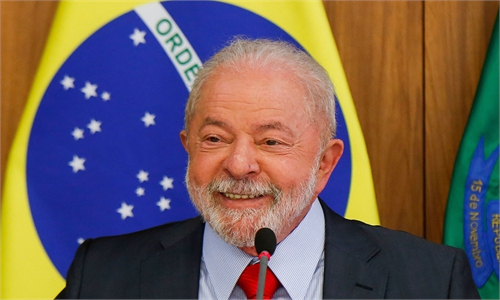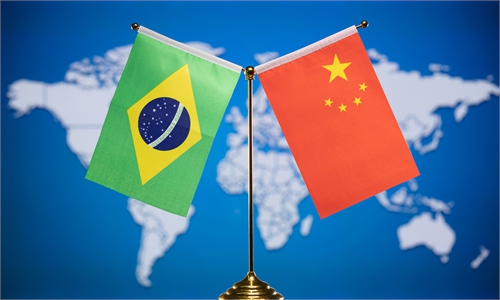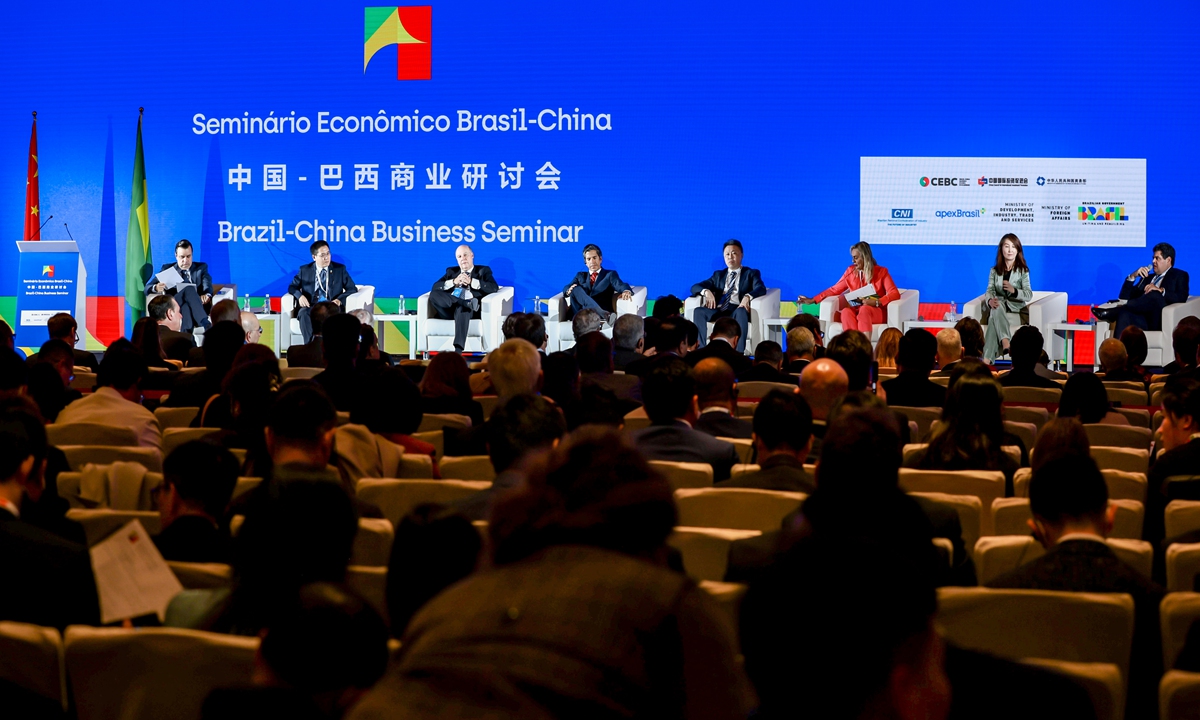
Industry representatives from China and Brazil in a panel discussion at the Brazil-China Business Seminar Photo: Courtesy of CCIIP
The Brazil-China Business Seminar, attended by high-level government officials and business representatives from both sides, took place in Beijing on Wednesday, as the two sides vow to tap into the potential for future cooperation, especially in the digital sector and green development.
The event was arranged ahead of Brazilian President Lula's scheduled visit to China. While his visit was postponed due to illness, the event continued at the president's call.
Before the new date of the presidential visit to China is confirmed, the Brazilian side has started work to re-launch Brazil's relations with China, its main trade partner since 2009, Brazilian Ambassador to China Marcos Galvão said at the event.
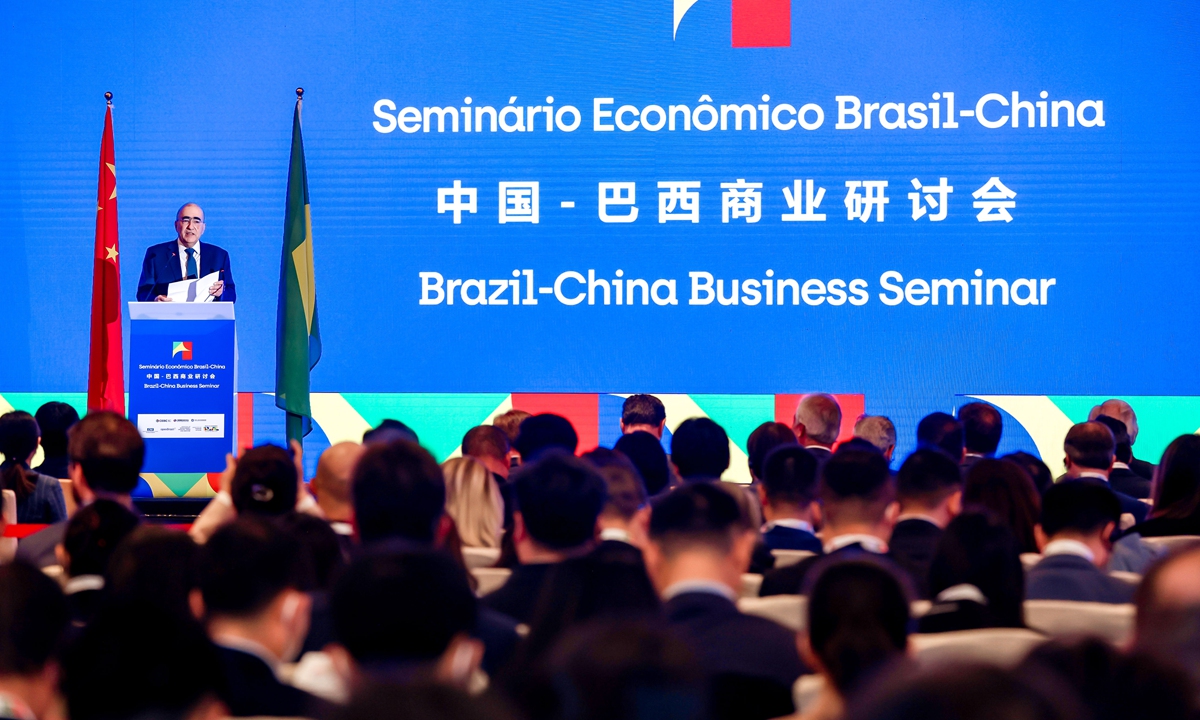
Marcos Galvão, Brazilian Ambassador to China, gives a speech at the event. Photo: Courtesy of CCIIP
"We need to further strengthen bilateral relations while jointly promoting the sustainable development of the two countries," Galvão said.
The ambassador called on both sides to make good use of bilateral cooperation in booming fields, such as energy transition, low carbon, technology innovation and biodiversity.
In the opening speech of the event, Chinese Vice Minister of Commerce Guo Tingting noted that despite the complex situation of historic global changes and the epidemic, China and Brazil have always taken care of each other's fundamental concerns and long-term interests, setting a good example for relationships among major developing countries.
China has been Brazil's largest trading partner for 14 consecutive years and has invested about $60 billion in Brazil, and many projects invested in by Chinese companies have become local development cards, according to Guo.
While the global economy is affected by high inflation, the COVID-19 epidemic and geopolitical conflicts, China-Brazil economic and trade ties have bucked the trend.
Ma Xiuhong, president of the China Council for International Investment Promotion, an organizer of the event, spoke highly of bilateral cooperation.
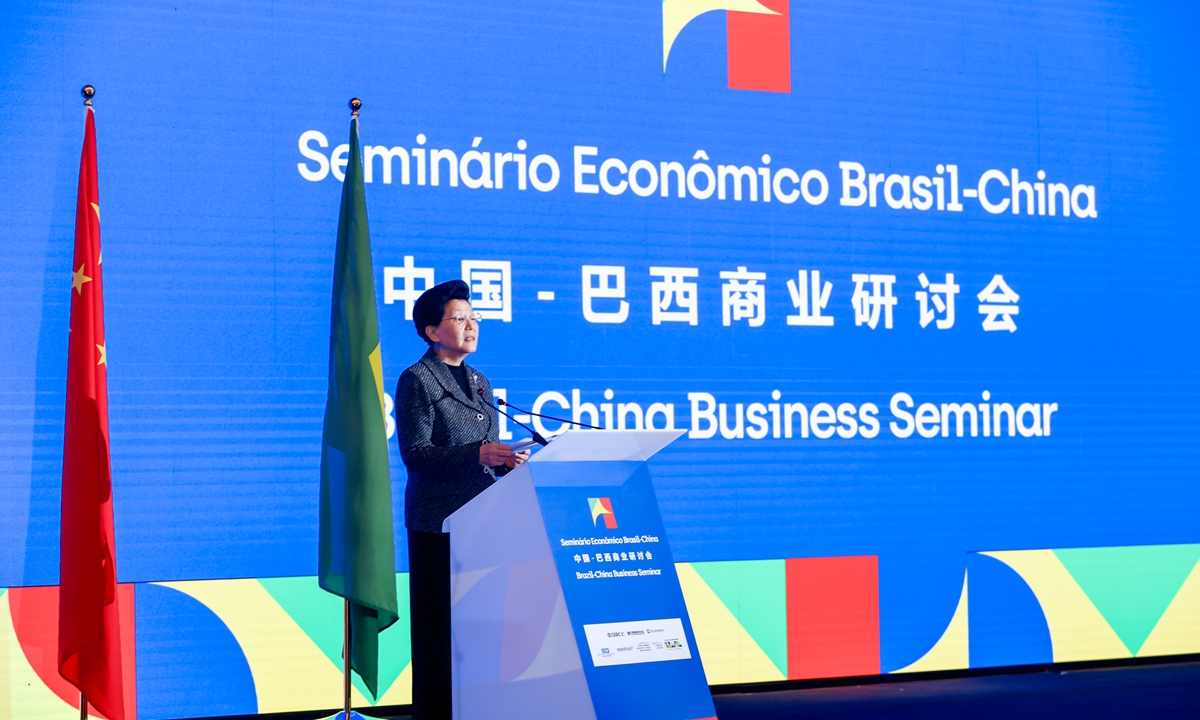
Ma Xiuhong, President of China Council for International Investment Promotion, gives a speech. Photo: Courtesy of CCIIP
In 2022, China and Brazil bilateral trade expanded nearly 5 percent year-on-year to $171.49 billion. Chinese companies' investment in Brazil increased 53.1 percent year-on-year, setting a good example for regional and global cooperation.
In the new development period, China and Brazil should aim at the high-quality growth of bilateral trade and two-way investment, while strengthening and expanding cooperation in fields such as technological innovation, digital economy, green energy and low-carbon development, to make economic and trade relations more diversified, wider and deeper, Ma said.
Chinese companies are actively exploring and cooperating with Brazil in emerging fields ranging from the digital economy to green development and mobile communications.
For example, China's BYD entered the pure electric passenger car market in Brazil, Huawei promoted the construction of smart cities in the country, and Didi built a mobile travel platform there.
Last month, China and Brazil signed a memorandum of understanding on the establishment of yuan-clearing arrangements in the Latin American country, which will further promote bilateral trade and investment.
Amid expectations for deeper bilateral economic and trade ties, businesses are optimistic about opportunities for cooperation.
Henry Osvald, president of the Bracham, told the Global Times on Wednesday that the private and public sectors of both countries are more aligned than before, given the high complementarity between the two.
"Brazil has been exporting a lot of resources such as bulk commodities and grain to China while we also need Chinese products, technology, and manufacturing capabilities in areas such as new-energy vehicles to boost our sustainable growth, generate jobs and add more value to the economy," he said.
When the US and European economies are not doing well, the Chinese economy and consumption are on a recovery trend, backed up by strong buying power and government support policies, Osvald said, calling on Brazilian companies to seize the opportunity for greater cooperation.
